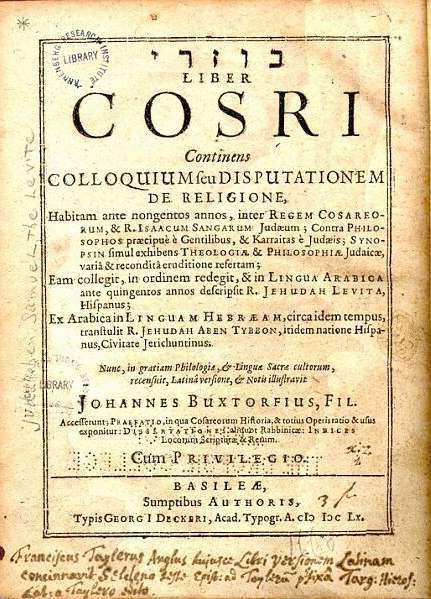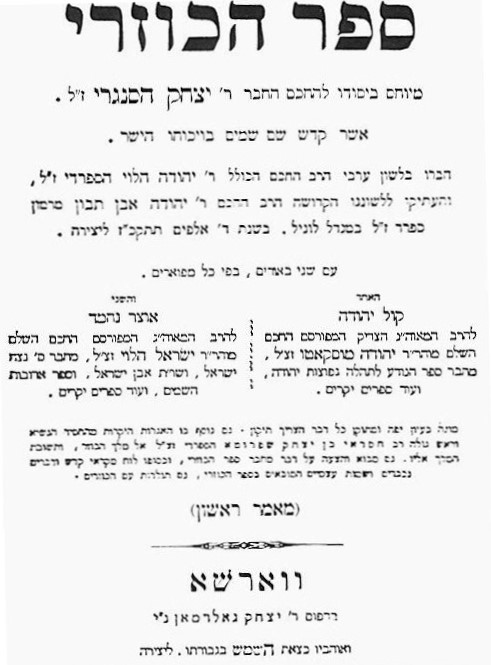Judah, ha-Levi, active 12th century. Kuzari
Enlarge text Shrink text- ספר: פירוש קדמון לספר הכוזרי 'חשק שלמה', תשס"ז 2007.
The Kuzari, full title Book of Refutation and Proof on Behalf of the Despised Religion (Judeo-Arabic: כתאב אלרד ואלדליל פי אלדין אלדׄליל; Arabic: كتاب الحجة والدليل في نصرة الدين الذليل: Kitâb al-ḥujja wa'l-dalîl fi naṣr al-dîn al-dhalîl), also known as the Book of the Khazar (Hebrew: ספר הכוזרי: Sefer ha-Kuzari), is one of the most famous works of the medieval Spanish Jewish philosopher, physician, and poet Judah Halevi, completed in the Hebrew year 4900 (1139-40CE). Originally written in Arabic, prompted by Halevi's contact with a Spanish Karaite, it was then translated by numerous scholars, including Judah ben Saul ibn Tibbon, into Hebrew and other languages, and is regarded as one of the most important apologetic works of Jewish philosophy. Divided into five parts (ma'amarim "articles"), it takes the form of a dialogue between a rabbi and the king of the Khazars, who has invited the former to instruct him in the tenets of Judaism in comparison with those of the other two Abrahamic religions: Christianity and Islam.
Read more on Wikipedia >
 Title
Title





